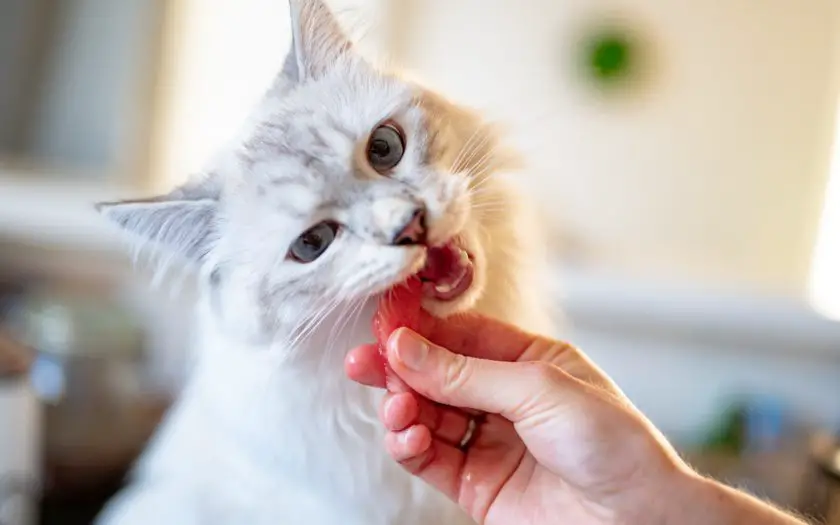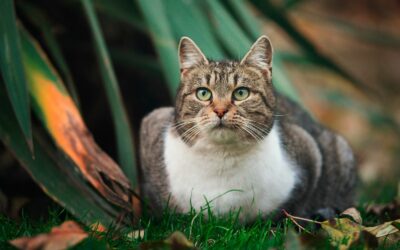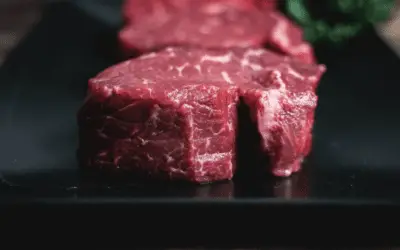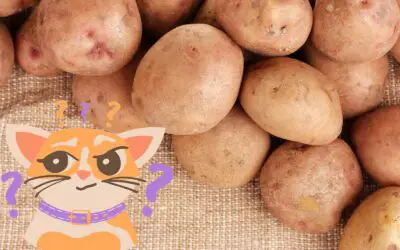Many cat owners treat their cats as part of the family. It’s only natural that we would want to share everything with our kitties, as they seem to enjoy a lot of the same things we do. But one area where our tastes will clash is food. Humans eat a number of different foods that are simply not good for cats. Some of our favourite snacks could even potentially cause serious medical issues. Our cats don’t know which foods are harmful, so it falls to us as cat owners to keep them safe.
It’s good to be prepared in case your cat is particularly curious and is able to sneak a bite of something they shouldn’t eat. The different signs of food poisoning include:
- Lethargy
- Diarrhea
- Pale gums and tongue
- Difficulty breathing
- Vomiting
- Excessive drooling
- Seizures
- Difficulty walking
- Bloody stool, vomit or saliva
While it’s good to get in touch with your veterinarian if you notice any one of these symptoms on their own, seeing them in combination is usually a good indication that your cat has food poisoning. Have the number for your veterinarian, emergency veterinary medical center and animal poison control (if any). Being able to get in touch with these services is critical if they ingest toxic food. If you adopted your cat from reputable cat breeders, they may be able to give you this information.
However, those numbers will just be a safety precaution, since this article will teach you some of the most common human foods that you shouldn’t be giving to your cat.
Alcohol
We don’t think that any cat owner would willingly give their cat a sip of beer. However, cats are agile enough to get up onto tables where people have left drinks, and curious enough to actually try some. The effects of alcohol depend on the animal’s weight, and most cats will only weigh a couple of pounds. Ingesting alcohol can pose a serious health risk for your cat, as even a small amount is enough to cause alcohol poisoning, resulting in vomiting, diarrhea and difficulty breathing. A good approach is to have covers for your drinks so that they’re harder for your cat to reach.
Chocolate
Who doesn’t love chocolate? Most pet owners already know that cocoa products like chocolate are bad for dogs, but cat owners also have to steer clear of it. Chocolates contain theobromine, a compound that is toxic to cats. It can cause vomiting, seizures, and possibly death. The reason for this is that cats simply aren’t able to break down this compound and it builds up in their bodies, causing theobromine toxicity.
While there are varying concentrations of theobromine in different varieties of chocolate, it’s best not to risk your cat’s health. Keep chocolate of any kind well out of their reach.
Coffee and other caffeinated drinks
Like chocolate, coffee contains a compound that cats simply can’t process and eliminate from their systems. It’s called caffeine, and it can cause the same effects in cats as theobromine. Any caffeinated drinks should be off-limits to your cat, as small amounts can quickly cause adverse effects.
Citrus fruits
Few cats will be lining up to take a bite of lemon, but other types of citrus fruits may be appealing enough for them to try. Citric acids and other essential oils present in the skin, leaves, flesh and seeds can be toxic to cats. The reaction isn’t quite as serious as with chocolate and caffeinated drinks, but large enough quantities can still cause digestive system problems, as well as central nervous system depression. Any citrus plants in your garden should be kept behind netting, and any citrus fruits in the kitchen should be disposed of in a covered trash can after use.
Grapes and raisins
Grapes and raisins have been known to cause acute kidney failure in cats, though the exact reason for this is still unknown. What’s more puzzling is that this reaction doesn’t happen in all cats, and some are able to eat grapes and raisins with no problem. We think it isn’t worth the risk to find out.
It’s best to simply keep grapes and raisins away from your cat, and that goes for other foods that may contain any trace of these fruits.
Macadamia nuts
Macadamia nuts are toxic to cats, and just like grapes and raisins, the exact mechanism that causes this toxicity is still unknown. What’s sure is that when ingested in large enough quantities, they cause vomiting and diarrhea in cats. The high-fat content can also cause digestive system problems, as well as pancreatitis. Many other nuts also have a very high-fat content, such as almonds, walnuts and pecans, but none of them are as toxic for cats as macadamia nuts.
Milk and other dairy products
There’s a popular misconception that cats love milk. They may drink it, but it really isn’t good for them. Many cats are lactose intolerant, meaning that milk and other dairy products can cause them digestive problems. It’s better to stick to water for your cat’s drinks, as cats need a certain amount of water to prevent dehydration.
Raw or undercooked meat
Raw meats can contain salmonella and E. coli bacteria, which can cause serious digestive problems in cats. This goes for beef, pork, chicken and fish, so it’s better to stick to cooked meats if you’re giving your cat whole foods. Otherwise, wet cat food is the preferred food for cats. If you are planning on giving your cat raw food, it’s best to speak with your veterinarian first to determine your cat’s suitability for that type of diet, as well as to get recommendations for prepackaged raw food that is certifiably safe.
Xylitol
While this artificial sweetener isn’t very common for home use, it’s found in a broad range of other foods. It’s widely used in gums, candies and other packaged goods. Large enough doses of Xylitol can cause a sudden release of insulin, causing symptoms similar to diabetes. In cats, this manifests as irregular heart rate, disorientation and seizures. If you’re going to give your cats a treat, make sure it’s something that is specially formulated for cats, and not candy for humans.
Cherries
These tasty little fruits are surprisingly dangerous for cats. The cherry pit contains cyanide, which causes issues in a cat’s bloodstream. Cats are also likely to break up the pit instead of simply swallowing it, releasing more of the cyanide into their system. Cherry poisoning is a serious medical condition, and immediate intervention is required if you notice that your cat has eaten some cherries.




